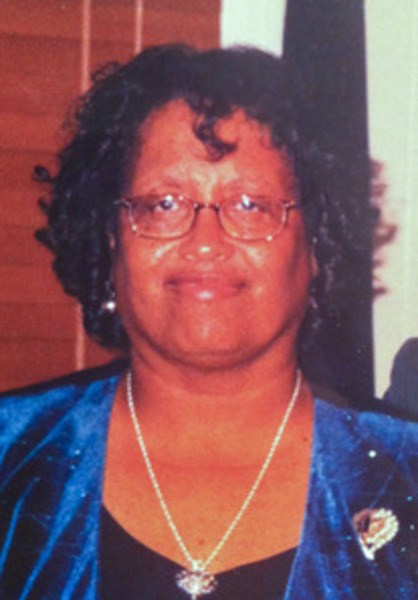Glover: Twyman played important role in Glasgow’s black community
Published 11:16 am Wednesday, August 28, 2013

- Alma Glover
GLASGOW — In both Washington, D.C., and in Glasgow, some 640 miles apart, 1963 proved to be a watershed year for civil rights.
While Martin Luther King Jr. delivered perhaps the single most galvanizing speech of the civil rights movement in the nation’s capital, Alma Glover was starting a new school year at Ralph J. Bunche School, where Glasgow’s black students were educated at the time and where Luska Twyman served as principal.
Trending
A graduate of Kentucky State University and a World War II veteran, Twyman spent a career in the educational field as a teacher and administrator. After desegregation in the mid-1960s, Twyman remained an administrator with Glasgow Independent Schools.
“He stressed education all the time,” said Glover, now the director of the Liberty District Ralph Bunche Center, in the former Bunche school building. “It wasn’t a day that Mr. Twyman walked the halls and didn’t walk in the classrooms and say ‘Good morning, students.’ “
In 1963, though, schools remained segregated, with black students having to make do with hand-me-down textbooks.
Glover recalls a close-knit environment among students, teachers and staff at Bunche and in Glasgow’s larger African-American community.
“Teachers would visit our homes and let us know what we needed to do to improve in school,” Glover said. “Even the cafeteria lady and the maintenance man played a part in our education.”
That supportive environment was set against a backdrop where businesses were reluctant to hire or serve blacks, and Glover was encouraged to stay out of certain neighborhoods to avoid harassment, she said.
Trending
In certain ways, Glasgow mirrored other Kentucky towns when it came to race relations in those days – segregation might have been articulated in less openly virulent terms than one would hear from politicians hailing from states in the Deep South, but change came gradually, and court intervention to enforce those changes was not unheard of.
For Glover, hearing about King’s speech and the other seminal events in the civil rights movement, especially in light of the slights she received while standing in line for government assistance while growing up, had a profound effect.
“You were glued to the TV,” Glover said of the footage of marches and other events. “I remember asking my mother, ‘Why is it they’re marching in Detroit and we’re not doing anything?’ and my mother said, ‘It’s best for you to keep your mouth shut.’ “
Change was effected in Glasgow in 1963, however, at the ballot box where Twyman won a seat on what is now the Glasgow City Council.
With his victory, Twyman became the first African-American elected to office in Glasgow. He would go on to be appointed Glasgow’s mayor in 1968 after the sudden resignation of his predecessor, and would be elected to four more terms in his own right, serving as mayor through 1985.
Glover remembers Twyman being unsure at the outset about how he would perform as the city’s mayor, but she believes Twyman should have had little reason to worry after watching him in action at Bunche.
“He wanted to branch out so he could help our people see better jobs and better opportunities,” Glover said. “He got that position in order to help, and he did a lot of things to bring in new businesses to Glasgow. He always looked out for us, but he never treated whites differently from blacks.”
Twyman’s pioneering career enabled him to be the first African-American in many capacities, and the only black mayor in Kentucky during his tenure in office.
He served on the U.S. Commission of Agriculture, the U.S. Commission of Human Rights, the Kentucky Education Association Board of Directors, the Governor’s Task Force on Transportation and the Kentucky State University Board of Regents. Twyman died in 1988 at age 74.
Glover studied at Western Kentucky University and later worked at General Motors and attended college in Michigan before leaving GM and going into social work. She and her husband returned to Glasgow several years ago, where she has organized Global Fest, an annual event in Glasgow to recognize and celebrate cultural diversity.
She spends plenty of time at her old school building, which now houses a nonprofit community center that she heads. The Glasgow-Barren County Chamber of Commerce named Glover the Outstanding Citizen of the year for 2006.
The passage in King’s I Have a Dream speech in which he envisions a world where people are judged by the content of their character instead of the color of their skin resonates with Glover to this day.
“I’m going to help anybody I can help regardless of what color they are,” Glover said. “I want to be able to help people, period.”
An impoverished upbringing and years of racial prejudice can conspire to deny people an outlet for their talents, and if a person emerges from that background frustrated and embittered, it wouldn’t necessarily be surprising or unjustified.
Glover, for her achievements, struggles with that at times, hoping that her message of unity doesn’t get lost among a swirl of people who may not be aware of the extent to which African-Americans struggled for civil rights within her lifetime.
“I don’t really know what it would take to change peoples’ mindset so that they’d look at people differently,” Glover said. “It would have to take an act of God to change peoples’ mindset about helping each other.”
Glover goes on, though, emboldened by the lessons Twyman imparted and the speech that King delivered 50 years ago.
“You appreciate things better when you have to struggle to get them,” Glover said.







